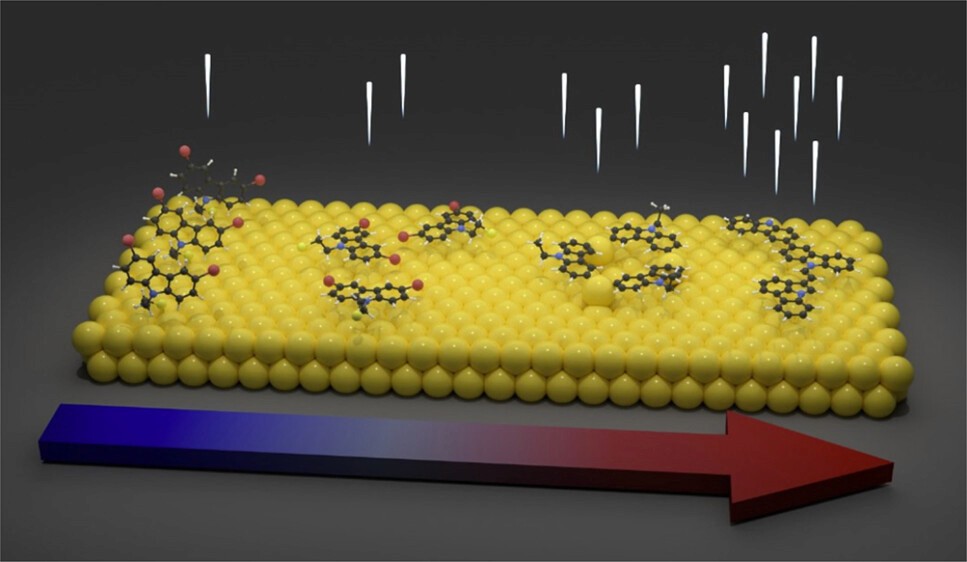On-Surface Reactions of Electronically Active Self-Assembled Monolayers for Electrode Work Function Tuning
Ricardo Ruvalcaba, Zhongzhe Liu, Mohamad Insan Nugraha, George Harrison, Yu-Ying Yang, Marco Thaler, Adam V Marsh, Matthias Zeilerbauer, Chrysa Aivalioti, Raul Ricardo Aguileta-Vazquez, Leonidas Tsetseris, Laerte L Patera, Percy Zahl, Martin Heeney, Thomas D Anthopoulos, Shadi Fatayer
ACS Materials Letters
2025
Self-assembled monolayers (SAMs) help improve the performance of organic electronic devices through interface passivation and enhanced carrier transport. Yet, there is limited information regarding the chemical structure of the SAMs upon functionalization and subsequent thermal treatment. Here, we studied the on-surface reaction of carbazole-derived SAMs on model gold electrodes, focusing on the chemical structure changes induced by thermal treatments. Furthermore, we correlate the microscopic changes with their impact on the electrode’s work function. The carbazole-based SAMs first transform into organometallic complexes. At higher annealing temperatures, SAMs convert to oligomeric complexes. The observed chemical reactions significantly reduce the electrode work function and facilitate electron injection in n-type organic thin-film transistors. Our results highlight the on-surface synthesis of electronically active SAMs as an alternative approach for modifying the work function of electrodes for organic electronics.


